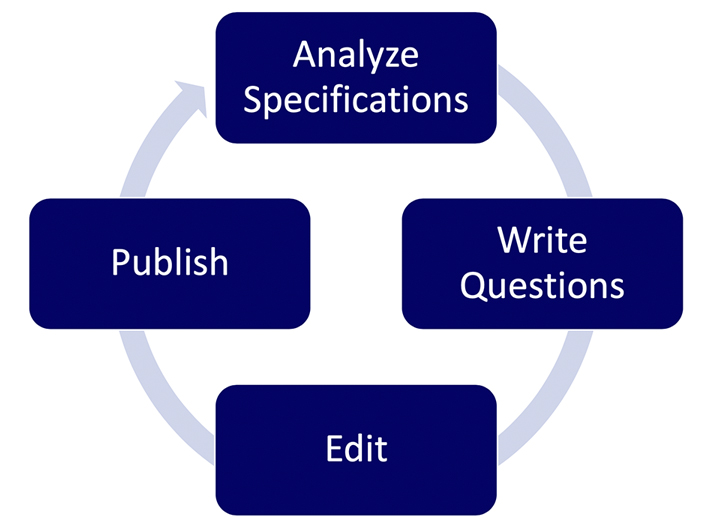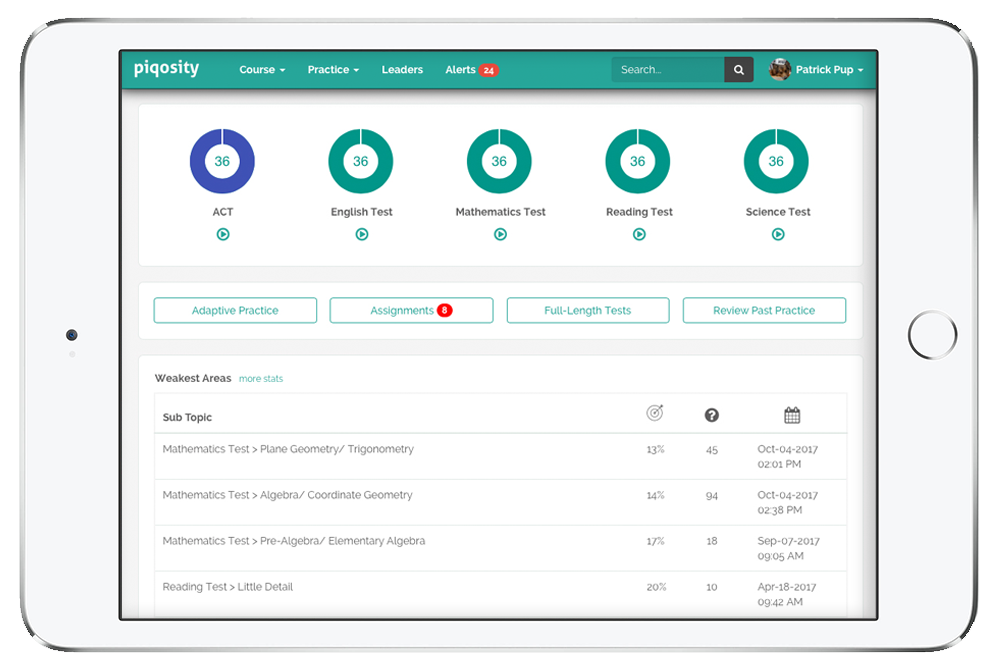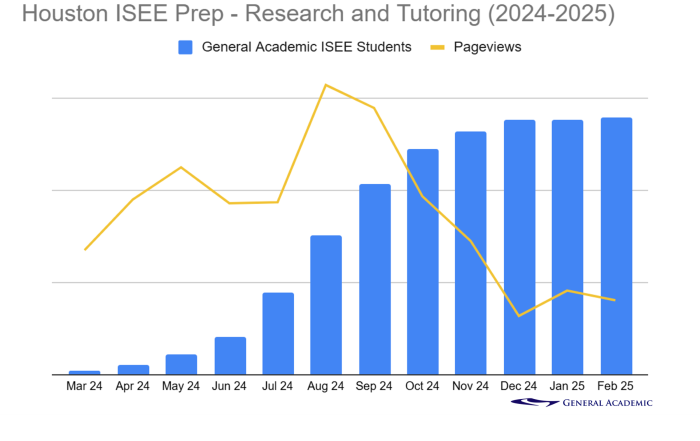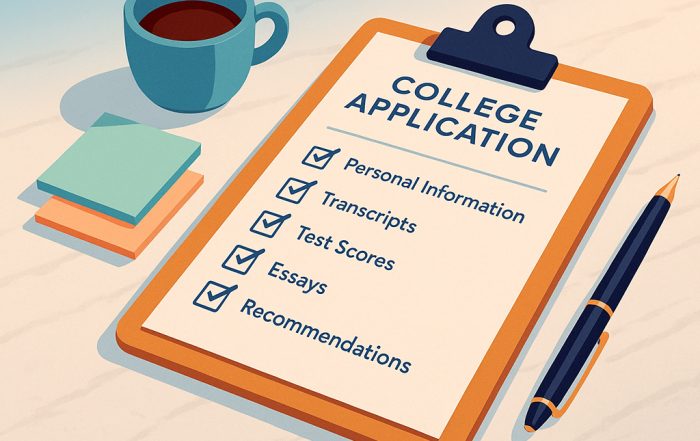ACT Practice Tests
General Academic is a global leader in education content publishing. We publish 10 full-length ACT practice tests. These tests are entirely free for anyone to use during the Covid pandemic.
Based in Houston, Texas, we have more than 17 years of experience helping thousands of students in our own backyard ace the ACT college admissions test.
Writing quality content is an arduous and time-consuming task, which we do with great care to ensure that students are as prepared as possible.
How We Write ACT Practice Tests
The first step in writing a practice test is to analyze the specifications provided by the ACT, Inc., the ACT’s publisher. The ACT publishes a number of documents on the test specifications including:
Within these many documents, ACT details the type of academic content and depth of knowledge they’re testing in math, English, reading, science, and writing.
Next, we conduct a detailed comparison and analysis between these specifications and the many previously released tests provided by ACT.
We write practice questions according to these principles:
- Are we testing an academic concept as specified by ACT, seen on a practice test, or cited by a student?
- Are we testing the concept in the same style as an official practice test question?
- Is our wording, punctuation, and sentence structure similar?
Furthermore, we follow additional guidelines when assembling full-length tests:
- Is our distribution of questions similar to ACT specifications and practice test?
- Is the overall difficulty, including tested concepts and time constraints similar?
- Is the practice test unique from others that we have written?
In general, we strive to ensure that our practice tests are very similar in difficulty to previously released ACT tests.
Our practice ACT content goes through multiple rounds of editing:
- The original writer works their test straight through looking for errors.
- A second writer works the test and writes answer explanations.
- An editor works the test looking for errors or variances from specifications.
- Several of our Houston-based ACT tutors themselves will work the test looking for errors or variances.
- Several ACT will work the test with their students ensuring content level appropriateness.
After all that editing is complete, we finally publish the practice tests through our partner Piqosity.com. However, one of the big benefits of digital publishing is the ability to make continuous improvements:
- Are too many students getting a question right (too easy) or wrong (too hard)?
- Are students and their tutors flagging questions for additional explanations (too hard or wrong)?
- After students have taken an actual ACT, what kind of feedback are they providing on our practice material? Did it over, under, or adequately prepare them?
Based off of this feedback, we continuously make improvement or changes as necessary.
The process of writing ACT practice tests is continual. We are aways listening to feedback to make improvements to our existing content, and we are always writing more content.
Our goal is to have at least 10 full-length practice tests plus thousands of practice questions for the ACT and SAT.
Additionally, we are also in the process of writing digital concept review lessons on the tested topics in math and English and data analysis (Science section).

Free ACT Practice Tests at Piqosity
 Piqosity – 10 Full-Length Practice ACT Tests
Piqosity – 10 Full-Length Practice ACT Tests
With a Piqosity subscription, students will gain immediate access to General Academic’s 10 full-length practice tests plus upcoming content review lessons. Piqosity automatically scores and analyzes practice sets and predicts a test-day score.
ACT® is a registered trademark of ACT,Inc., which does not endorse these products.
ACT Overview
Students may take the ACT as frequently as they want and need to. Official ACT test dates vary slightly from year-to-year, but we generally recommend that they take the test up to three times throughout their Junior year of high school:
- Late October
- Mid-February
- Early April
Testing multiple times allows students to set goals for themselves leading up to each test date, and to then revisit those goals and adjust their study plan accordingly each time they take the test. It also allows students to become more comfortable with the testing environment.
Beginning in September 2020, the ACT will also offer Section Retesting; students will be able to re-take between one and three individual sections of the ACT (in an online format) on any of the seven national ACT test dates offered throughout the year. This will add even more flexibility to the ACT preparation timeline.
The ACT is a 4-part test that lasts approximately 3 hours and includes one 10-minute break. Taking the optional fifth component, the ACT writing test, adds another 40 minutes and an additional short break.
The four multiple-choice sections include:
- English (75 questions, 45 minutes)
- Math (60 questions, 60 minutes)
- Reading (40 questions, 35 minutes)
- Science (40 questions, 35 minutes)
The ACT is designed to test students on concepts that they have learned throughout their high school career. This includes:
- Grammar, mechanics, rhetoric, and style for the English test
- Math through Algebra 2 (along with some Trigonometry) for the Math test
- Reading comprehension and analysis skills across a variety of genres for the Reading test
- Data analysis and scientific problem-solving skills for the Science test
Preparing for the ACT therefore does not require students to learn a significant number of new concepts; instead, students must continually review and reinforce their knowledge and skills based on their individual strengths and weaknesses, while also gaining familiarity and comfort with the test structure (including its format and timing).
For each of the four multiple-choice sections on the ACT, the student’s raw score is converted into a “Scale Score” from 1 to 36. The average of the student’s scale score from each section results in their overall ACT score, or composite score, from 1 to 36.
A composite score of 20 is at the 50th percentile nationally, but many selective colleges look for students who have scored in the the top 5% (31 or above). It is very important for students to pay attention to the median ACT scores of admitted students for the colleges they are interested in so that they can set their score goals accordingly.
The ACT’s essay portion is known as the ACT writing test. While this portion of the ACT is technically optional, students applying to selective schools are strongly encouraged to take it, as many colleges recommend or require essay scores.
The writing test asks students to write an argumentative essay about an issue of wide relevance to modern society. The test provides a description of the issue along with three possible perspectives, and students are tasked with writing an essay in which they state their perspective and support it with relevant evidence and examples.
The ACT essay is scored and reported separately from the multiple choice sections. Two different readers assign a score between 1 and 6 in each of four “domains”: Ideas & Analysis, Development & Support, Organization, and Language Use & Conventions. The two readers’ scores are added together, resulting in a total score between 2 and 12 in each dimension.
The best predictors of a student’s success on the ACT are good grades in school in core academic subjects like math, science, English, and history.
Therefore, the best way for a student to prepare is to ensure that they’re doing well in core subjects well before they plan to take the ACT.
Next up are standard good test-taking practices:
- Determine target score & what it takes to achieve
- Know the content and format of the ACT
- Identify subject areas that are weak
Core academics are king. There is no amount of tips and tricks that will help students ace the ACT if they do not know how to graph a quadratic or punctuate a sentence.
Our Latest News and Analysis
Houston’s Major School Holidays and Test Dates 2025-2026
Whether you are planning out your timetable for extracurricular activities or your preparations for the ISEE, SAT, ACT, or [...]
When Should Houston Students Start Preparing for the ISEE Test
Most students in Houston start researching ISEE prep in March and start tutoring by August the year they apply to [...]
The Best Cooling Neck Fans to Beat the Heat
Only commercialized within the last few years, thermoelectrically-cooled neck fans promise to keep you comfortable indoors and outdoors. They [...]
How to Build a Balanced College List When Applying to College
Choosing where you will spend the next four years is a high-stakes decision that shapes your learning, finances, and future [...]



